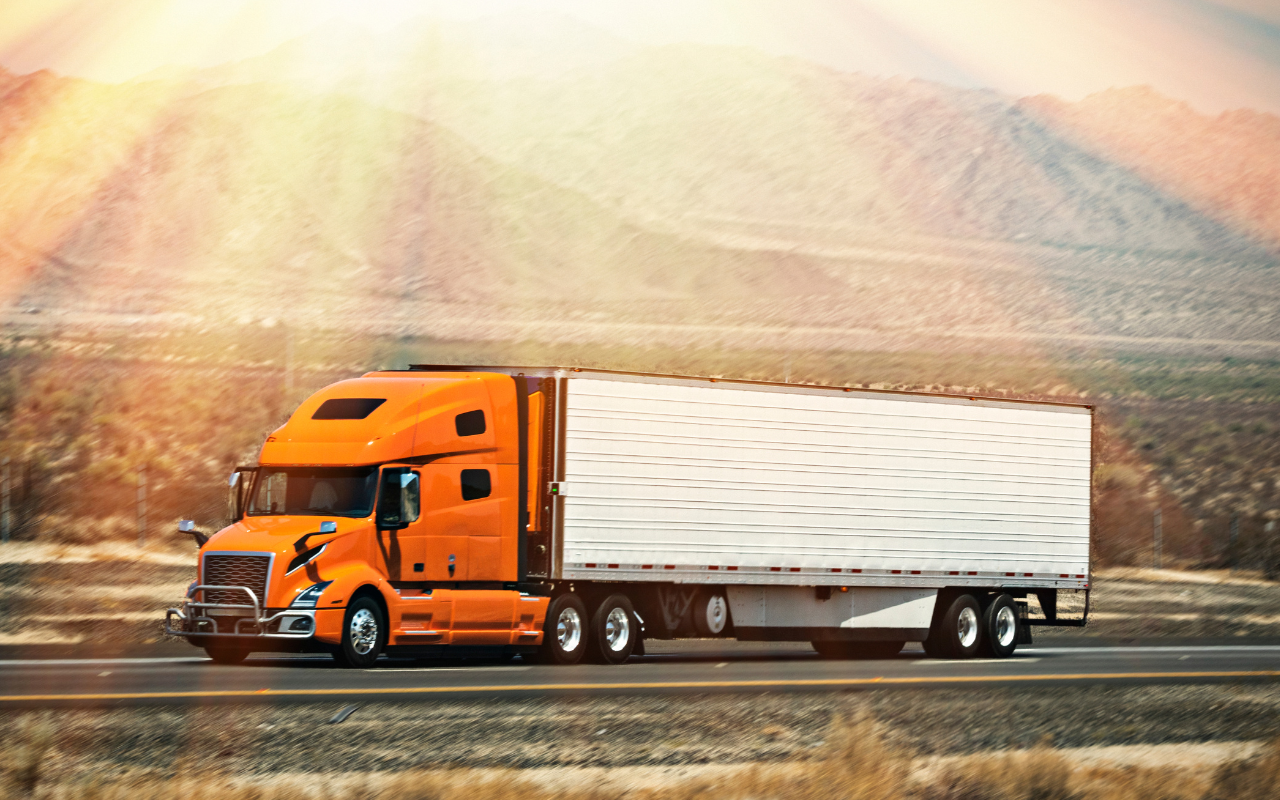
Commercial Trucking Insurance Requirements
Commercial trucking companies must carry a minimum level of insurance in order to operate. This is for good reason. Large trucks are heavier, larger and more dangerous than most other vehicles on the road. The damage caused by a large truck as opposed to other vehicles can be much more serious and expensive because of its mass and size difference.
Federal Requirements For Trucking Insurance
Trucks must follow federal trucking insurance requirements. Some states have their own, more stringent requirements on trucks and truck drivers. There are also different mandatory minimum levels of coverage based on what a truck will be hauling. These minimums are all set by the FMCSA, Federal Motor Carrier Safety Administration. It’s vital for truck drivers and companies to have the proper coverage for their type of cargo in the states they will be operating in.
What You Need To Know About FMCSA Insurance Minimums For
Trucks
Every driver is responsible for having $5,000,000 in coverage of hazardous materials. When planning on trucking any material other than oil, drivers must have $1 million worth of coverage, while over 10,000 pounds and driving hazardous materials requires $750,000. The little stop trucks under 10,001 pounds require only 300 thousand dollars’ worth of insurance. For a private driver or company that hauls oil there are rules for how much coverage to have depending on the weight of the truck.
Insurance is an essential part of staying protected on and off the road. These trucking insurance requirements can be understood by anyone.
The Different Types Of Cargo Insurance
Cargo insurance ensures the safety of goods being transported by a tractor-trailer or 18-wheeler.
What To Know About Bobtail Insurance
Knowing that your driver and vehicle are covered when they’re not hauling a load is just as important as having coverage for the time when they’re fully loaded. This is the piece of mind that having bobtail insurance will give you.
Physical Damage Coverage In Commercial Trucking
The physical damage portion of your commercial trucking policy is used to cover any physical damage that may occur.
What Is Limited Depreciation Coverage
This is helpful if insurance only provides enough to cover fair market value and the total cost owed is higher. Limited depreciation coverage can be utilized to cover the difference in cost and buy a new truck.
Mechanical Breakdown Insurance Rates
Truckers and companies use mechanical breakdown insurance to cover the costs of repairs, which on a semi-truck can become quite expensive depending on what needs to be fixed or replaced.
What Is Non-Trucking Liability Insurance? If you use a truck for personal use and an accident occurs, or you are using it for a day off and there is an accident- this coverage is for accidents or other damages (i.e., car accident) that occur when off the
clock or for a vacation).
What Does On-Hook Coverage Take Care Of?
If you operate a truck that hauls, or tows other vehicles on-hook coverage will cover any damage that occurs to the vehicle being towed if an accident were to occur.
Are Truck Companies Able To Set Their Own Insurance Minimums?
A carrier may require that the independent contractor has a certain level of insurance coverage, voluntarily and paid for by the independent contractor. They do this to protect themselves in case something happens during the trucking process. Some carriers go a step further and require truck drivers to also carry cargo insurance, which is an optional insurance. This is done at the discretion of the carrier.
Do Truck Insurance Minimums Cover Accident Survivors?
In the 1980s, the FMCSA created the Motor Carrier Act, which set many of the requirements for trucking insurance. That minimum level hasn’t been adjusted since, and because of inflation and higher cost of medical care someone who is in an accident with a commercial truck wouldn’t be adequately covered.
Well before the FMCSA released their report showing that the minimum coverage amount of $750,000 wasn’t keeping up with inflation, a House panel attempted to amend a four-decade-old law to account for inflation. The true inflation adjusted number shows that coverage minimums should be closer to $1.62 million figure. This doesn’t factor in healthcare costs, which have grown
faster than inflation over the last few decades.
Representative Jesus Garcia of Illinois says that this change is what is necessary to support families recovering from crashes. These new requirements will provide school buses, transit buses, and large capacity vehicles a minimum insurance policy.
Shook & Stone Can Help Truck Accident Victims Get The Compensation They Deserve
When the trucking business is unsafe and insurance companies don’t offer enough, Shook & Stone steps in to demand fair compensation. We’ve recovered over $750,000,000 dollars by never settling for less. When the other side is unfair, we hold them accountable. When insurance companies aren’t ready to help, we ask them to treat clients with the respect they deserve.
We’ll stand by to answer your questions when you call our offices at (702) 570-0000. If you’re struggling after a truck accident, we can fight for the compensation you need.
 Clear
Clear Airbag Deployment and Car Accidents
Airbag Deployment and Car Accidents 